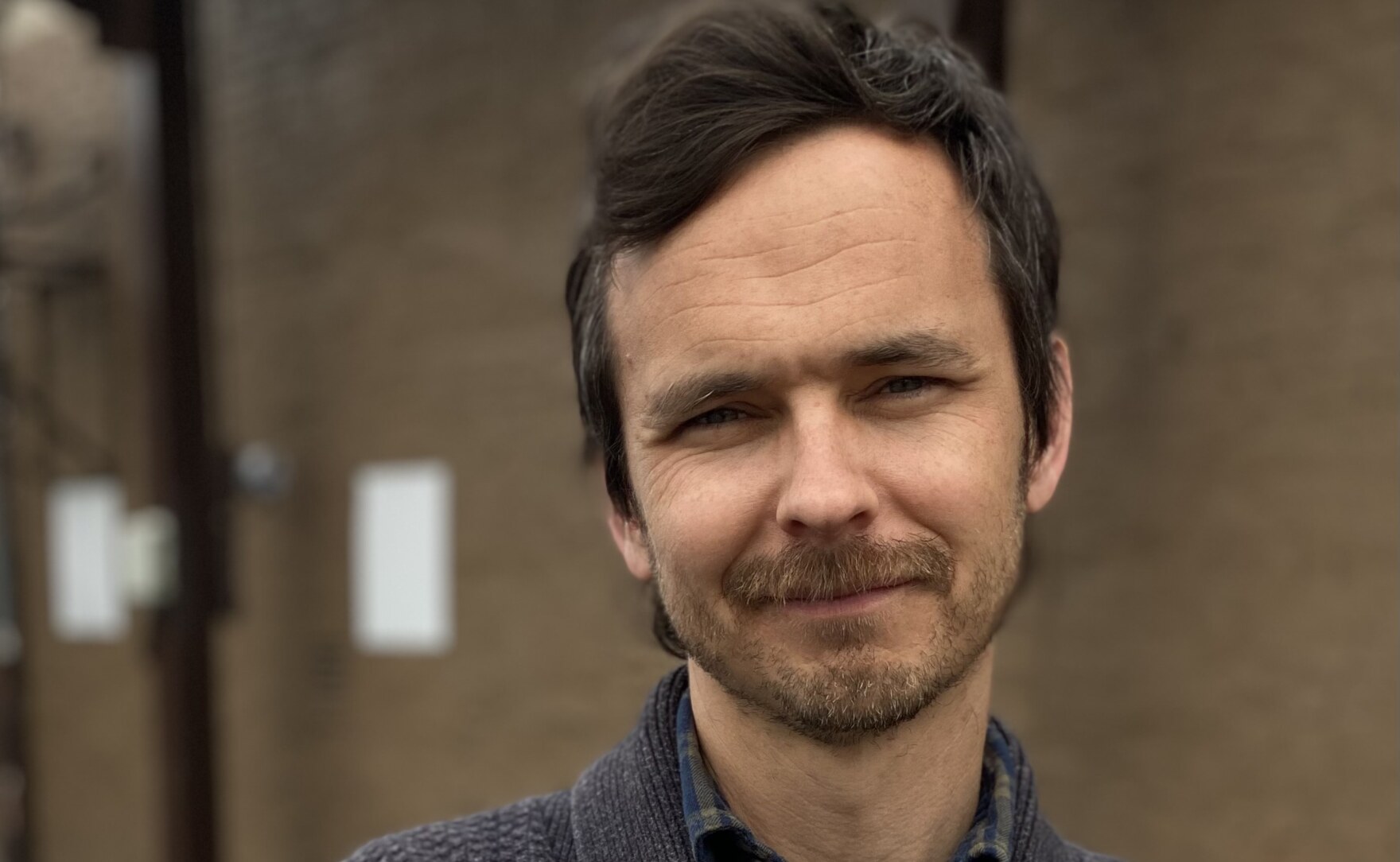LISTEN: Sam Weber Has The Mountain Stage Song Of The Week
This week's encore broa...
Continue Reading Take Me to More News
In celebration of its 150th anniversary, the city of Huntington has created a Literary Laureate. The first person to hold the position is Daniel O’Malley.
Originally from Cedar Hill, Missouri, O’Malley went to graduate school at the University of Florida and then moved to Huntington in 2012 to work at Marshall, specifically teaching in the English department with a particular interest in creative writing.
He spoke with Eric Douglas about his new role.
This interview has been lightly edited for clarity.
Douglas: Are you teaching a variety of classes or just focused on creative writing?
O’Malley: I’ve taught a whole range of classes in composition, literature at the introductory level, advanced-level graduate courses, but my main area is creative writing, specifically fiction writing. That’s what I studied in graduate school. That’s the kind of writing that I do, myself.
Douglas: Tell me about your own personal writing.
O’Malley: Mainly what I’ve been focused on is short stories. I took a couple of writing workshops when I was in college and I’ve been fairly obsessed with short stories ever since. I’ve been working on a collection of stories, publishing them in literary magazines here and there. But now I have a manuscript for a collection of stories I am finishing up right now.
Douglas: Short stories are always a challenge, because just as important what you leave out is what you actually leave in the story.
O’Malley: I agree and I think sometimes it can seem strange to an outsider that a finished story is three or four pages long. But it takes quite a long time to get there. Even if I can write a first draft fairly quickly, I spend a lot of time just going back over that draft, setting it aside and coming back to it. I’ve had stories that are 1,000 words, but I’ve worked on that 1,000 words for four or five years.
Douglas: Tell me about the literary laureate program and about your vision for it.
O’Malley: My hope is to be able to emphasize the importance of literature and writing in the community. One of the first things I appreciated when I moved to Huntington in 2012 was how lively the literary community was; the number of readings and events and writers groups around town. It felt like a very nurturing community. The creation of this literary laureate position is a nice extension of that, a way to formally emphasize the importance of literature and writing in the community. One of the things I hope to do in this position is to encourage people to get involved in literature and in writing. Trying to encourage people to have a role beyond being an audience for literature and writing, to think about how they can engage in those things themselves.
There will be some activities that are specific to the sesquicentennial celebration, some public readings for myself or other writers, to coincide with other events around the city.
I’m also planning to put together a Huntington literary festival that will include public readings, but also writing workshops and a collaborative storytelling event where I’m going to try to get people at different locations around town to each contribute a sentence or a line to a story or to a long poem.
Douglas: There are a lot of people out there who would love to write. What, as the literary laureate, can you do to inspire those people who want to write and just don’t know how to get started?
O’Malley: That’s a great question. I think one of the things that this position can do, just the very existence of it, is serve as a reminder to people that they can write. It’s something they can choose to do.
You can’t develop as a writer without spending time writing. A lot of that process involves experimentation, trying, failing, trying again. But I’m not aware of any shortcuts. I think a lot of times when people are looking for advice, what they’re hoping for is some way to expedite that process. At least in my experience, it just takes time spent writing and time spent reading.
The process should be fun in some way, which isn’t to say that you’re just smiling and laughing the whole time. The process can also be rigorous, painful, and it can stir up strong emotions. But it should be something that you get immersed in, and that you feel compelled to do. And it shouldn’t just be a chore.
Douglas: Is there anything we haven’t talked about?
O’Malley: One of the things that I talked about with the people here in Huntington in my proposal for the position is creating opportunities for people to tell their own stories about Huntington, whether those are true stories or works of fiction.
I am hoping we can all get a deeper sense of the place, the community and the people through the stories that people tell.
This story is part of a series of interviews with authors from, or writing about, Appalachia.